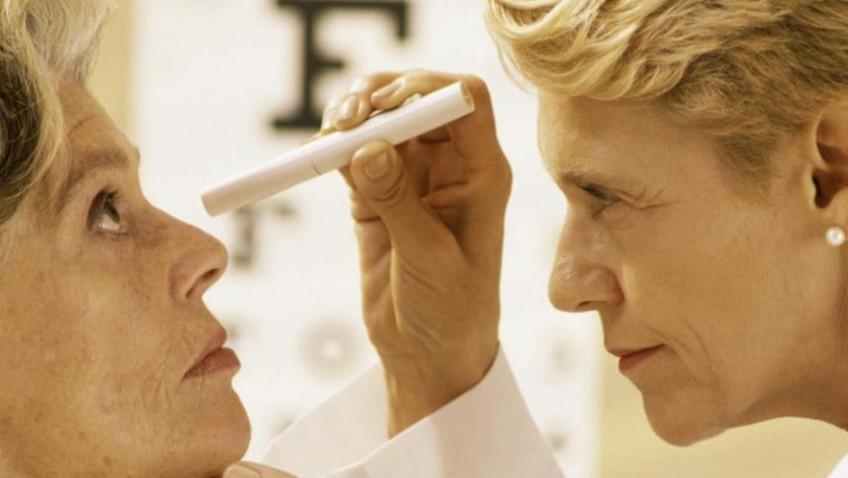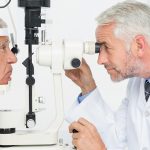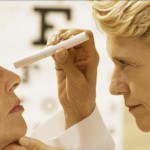It’s easy to neglect your eyes because they rarely hurt when there’s a problem.
Having an eye test won’t only tell you if you need new glasses or a change of prescription, it’s also an important eye health check. It can spot many general health problems and early signs of eye conditions before you’re aware of any symptoms – many of which can be treated if found early enough.
Optometrists recommend that people over 40 and people from black or minority ethnic groups have a sight test every two years (or more frequently if advised).
What should I do if I notice a change in my sight?
Visit your optician or GP if you’re concerned with any aspect of your vision at any time.
Anyone can develop sight problems, but some people have a higher risk of eye disease. It’s especially important to have regular eye tests if you are:
• above 60 years old
• from certain ethnic groups; for example, people from African-Caribbean communities are at greater risk of developing glaucoma and diabetes, and people from south Asian communities are at a greater risk of developing diabetes Diabetic retinopathy , in which the retina becomes damaged, is a common complication of diabetes
• someone with a learning disability
• from a family with a history of eye disease
Because our eyesight changes as we get older, almost all of us will need to wear glasses or contact lenses by the time we’re 65.
As you get older, you become more likely to get certain eye problems:
• Difficulty reading. Eye muscles start to weaken from the age of 45. It’s a natural ageing process of the eye that happens to us all. By the time you’re 60, you’ll probably need separate reading glasses or an addition to your prescription lenses (bifocals or varifocals).
• Floaters. These tiny specks or spots that float across your vision are normally harmless. If they persist, see an optician as they may be a sign of an underlying health condition.
• Cataracts. Easily detected in an eye test, this gradual clouding of the eye’s lens is extremely common in over-60s. A simple operation can restore sight.
• Glaucoma. This is related to an increase in pressure in the eye that leads to damage of the optic nerve, which connects the eye to the brain. Left untreated, glaucoma leads to tunnel vision and, ultimately, blindness. However, if it’s detected early enough, these complications can usually be avoided with eye drops.
• Macular degeneration. This is a disease of the retina caused by ageing. The retina is the nerve tissue lining the back of your eye. There are two types of macular degeneration. The first type, called dry macular degeneration, gets worse very slowly. The other type gets worse very quickly. This needs to be seen as an emergency in a hospital eye unit for prompt treatment.
What can I do to look after my eyes?
• Give up smoking
Smokers are much more likely to develop age-related macular degeneration and cataracts compared to non-smokers. Find out about the help and support available to stop smoking.
• Get moving
While it might seem odd that exercise can help the eyes, it can be important. Research shows that exercise may reduce the risk of sight loss which can occur from high blood pressure, diabetes and narrowing or hardening of the arteries.
• Eat healthily
A healthy balanced diet, with a wide variety of fruit and vegetables, will benefit your overall health and may help to keep the retina healthy.
• Drink within the recommended limits
Heavy alcohol consumption is associated with an increased risk of early age-related macular degeneration.
• Protect your eyes from the sun
Never look at the sun directly, even when something exciting is happening, such as an eclipse.
Doing so can cause irreversible damage to your eyesight and even lead to blindness. Several studies also suggest that sunlight exposure is a risk factor for cataracts.





